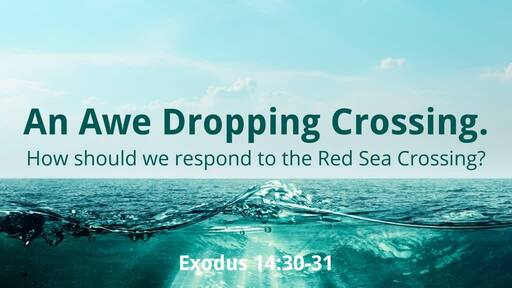(Exodus 14:30-31) An Awe Dropping Crossing.

The Red Sea crossing should compel us to behold, trust, and follow the LORD.
How should we respond?
(1) Behold the Lord.
If I find in myself a desire which no experience in this world can satisfy, the most probable explanation is that I was made for another world.
I wrote this book for me because I came to see that I was wired for awe, that awe of something sits at the bottom of everything I say and do. But I wasn’t just wired for awe. I was wired for awe of God. No other awe satisfies the soul. No other awe can give my heart the peace, rest, and security that it seeks. I came to see that I needed to trace awe of God down to the most mundane of human decisions and activities.
(2) Trust the Lord.
(3) Follow the Will of the Lord.
The Red Sea crossing should compel us to behold, trust, and follow the LORD.
do we not, most of us, halt between two opinions? do we not endeavour to do service to two masters? and is it not the frequent practice of the generality of Christians to compound between God and the world? to contrive how to serve God, without renouncing the service of the world, the flesh, and the devil? Do we not see many, who make loud professions of their zeal for religion, still anxious for the good things of this life? In short, may we not truly say that while we all pretend to be true worshippers of God, we do every one in particular, at some seasons, set up his idols in his heart, and divide his religious worship between that and his God?
